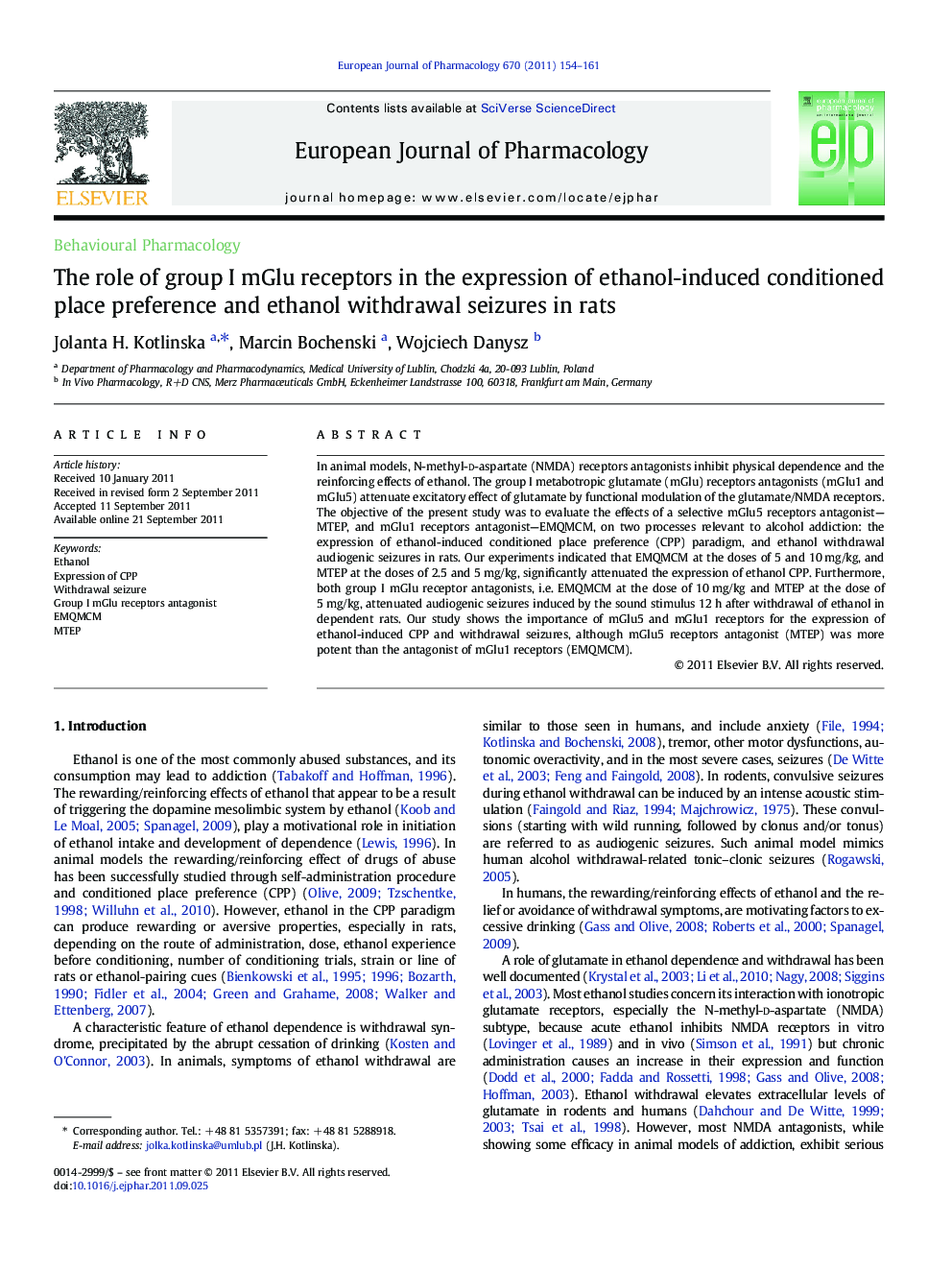| Article ID | Journal | Published Year | Pages | File Type |
|---|---|---|---|---|
| 5830219 | European Journal of Pharmacology | 2011 | 8 Pages |
Abstract
In animal models, N-methyl-d-aspartate (NMDA) receptors antagonists inhibit physical dependence and the reinforcing effects of ethanol. The group I metabotropic glutamate (mGlu) receptors antagonists (mGlu1 and mGlu5) attenuate excitatory effect of glutamate by functional modulation of the glutamate/NMDA receptors. The objective of the present study was to evaluate the effects of a selective mGlu5 receptors antagonist-MTEP, and mGlu1 receptors antagonist-EMQMCM, on two processes relevant to alcohol addiction: the expression of ethanol-induced conditioned place preference (CPP) paradigm, and ethanol withdrawal audiogenic seizures in rats. Our experiments indicated that EMQMCM at the doses of 5 and 10Â mg/kg, and MTEP at the doses of 2.5 and 5Â mg/kg, significantly attenuated the expression of ethanol CPP. Furthermore, both group I mGlu receptor antagonists, i.e. EMQMCM at the dose of 10Â mg/kg and MTEP at the dose of 5Â mg/kg, attenuated audiogenic seizures induced by the sound stimulus 12Â h after withdrawal of ethanol in dependent rats. Our study shows the importance of mGlu5 and mGlu1 receptors for the expression of ethanol-induced CPP and withdrawal seizures, although mGlu5 receptors antagonist (MTEP) was more potent than the antagonist of mGlu1 receptors (EMQMCM).
Related Topics
Life Sciences
Neuroscience
Cellular and Molecular Neuroscience
Authors
Jolanta H. Kotlinska, Marcin Bochenski, Wojciech Danysz,
